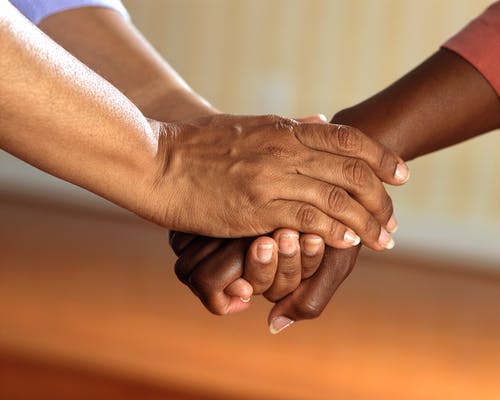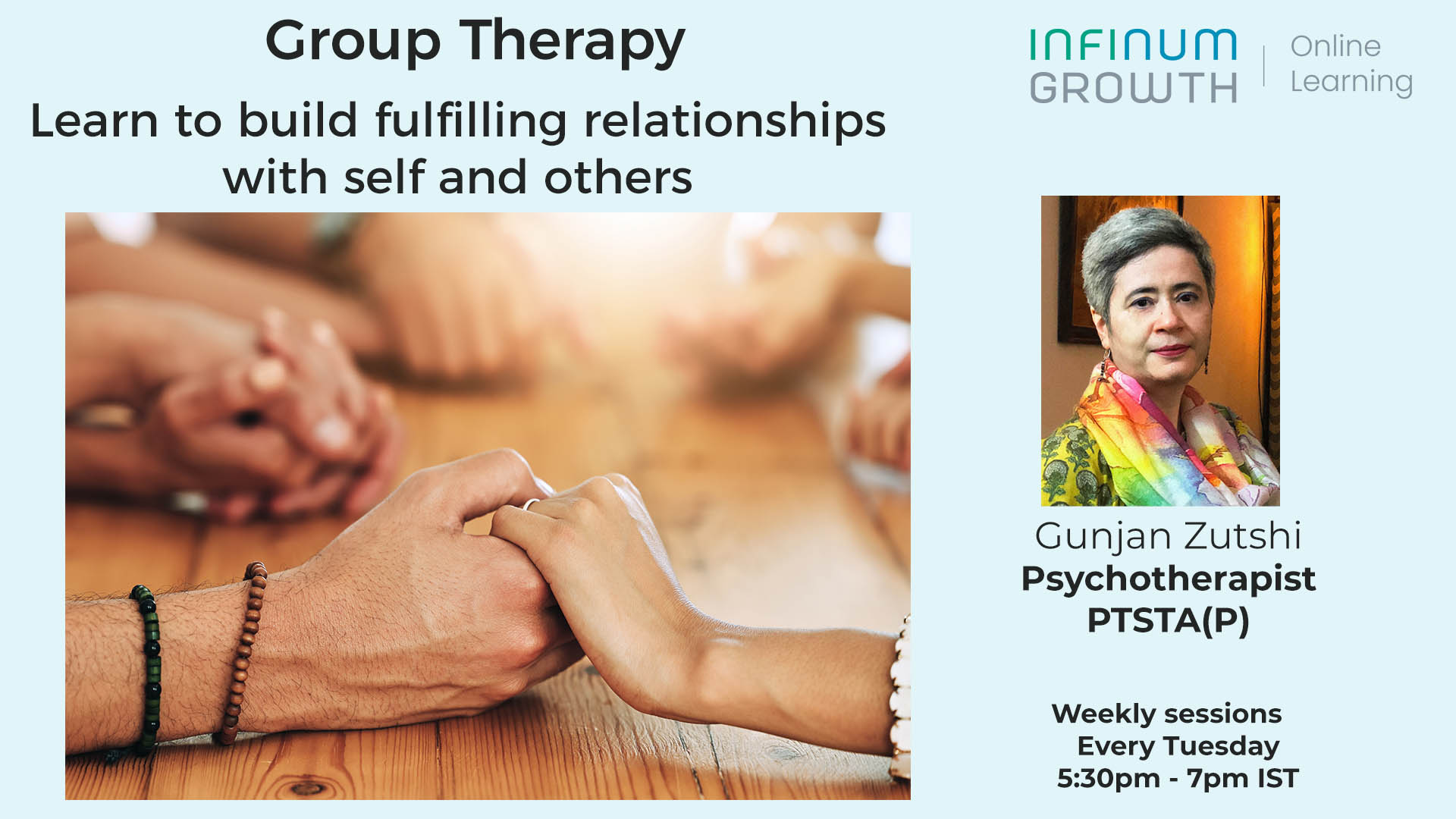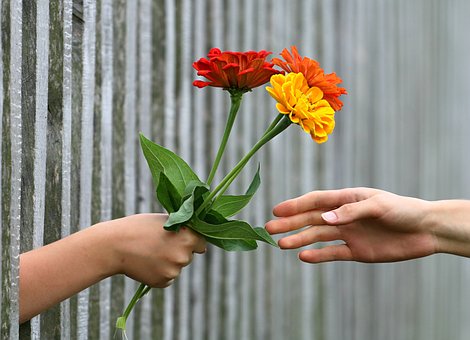I’ve been born and brought up in an environment where specific qualities like altruism, generosity, benevolence, philanthropy and so on are placed a lot of emphasis on. I come from a collectivist society – a society which values the needs of the group, more than the needs of an individual; meaning, being a giver, or the one who is more “other-serving” than “self-serving” is admired or appreciated.
A Givers’ Society
What comes to my mind is the visual of a palm, that’s folded into a fist, but open enough to let whatever lies within its core to fall out, flow or bestow. As I’ve lived my life, I’ve come across person after person who’ve had that same palm of a giver.
My mother is someone who has learnt acupressure, reiki and other alternate forms of healing therapies; and I’ve often witnessed people, who’d be ailing, come to our house, seeking help. In different neighbourhoods, I’ve seen people give food, clothes, old furniture, money, books etc to the ones less privileged. I’ve seen adolescents teach grammar to little kids or help them solve math problems.
Giving in the emotional space
As I grew up I understood that, just like any other need, we also have emotional needs; where worldly issues are laced with emotional ups and downs. I started noticing the agony aunts/uncles who were present in every household, nukkads, small offices, businesses, social circles- basically in all arenas.
With time, I found myself become one of those agony aunts among my circle of friends. People would often share their tales with me; some would come for a shoulder, others for some counsel and few others for a soundboard.
I was repeatedly told by many that I should become a counsellor; and eventually, I did! I’m a therapist now and work along with a team of other therapists; and each one’s job profile states, “be there for others in their journey of healing and transformation.”
The role of the therapist requires one to be more of a facilitator. One is trained to suspend their own biases, needs and judgments. However, I observed that, outside of our role as therapists too, most of us were in the space of listeners; more than in the space of people talking or delving deep into their own vulnerabilities.
Givers get stuck with their position
All these givers/helpers/benefactors always held the place of givers. In other words, their role of the “Giver” was fixed; like a nail in the wall, almost immovable. While this insight brewed in the corner of my mind, I also started noticing in different conversations with people; and, in things I read, that there were these 2 factions spoken about often- Givers and Takers.
It made me question- why did people choose to be affixed in a role? In particular, why did the givers continue to be givers; how was that a comfortable place?
Here are some conclusions –
1.Giving – A place of Safety
A few months back, my younger sister, while in the middle of a conversation, yelled at me because, the evening we were spending together was about to end and I had not shared with her even a nugget of my life. She was irritated that I was often a closed book, and she had to wait for that book to open on some special day or occasion.
I couldn’t understand her at first, but later understood that while I may have made my presence very safe and non- judgmental for her to lay out her life to me, what was absolutely incomplete and therefore, unsatisfying about that connection was my adamance to not allow another person in that equation to provide an ear. I was not ready to make anything of me visible.
Providing warm, comforting places for people to be themselves, was the role I played constantly. What was inorganic about this was ‘constantly’. It told me that I wasn’t this person only because I had empathy to offer; it was because people’s stories, somehow, were hiding places for me. Someone’s visibility allowed me to hide; it gave me safety.
Beyond a point, I wasn’t sure if I was the giver or the receiver of my safety.
2.Giving- an attempt to feel complete
In my work with my therapist, I’ve learnt to look at my emotions, ranging from the bearable, enjoyable to the most difficult ones, and own up my emotional realities. It is a process, I’ve understood, is immensely important.
However, with the neglect, dismissal, criticism or judgement of those very emotions in the past, very often, we remain cut off from them, while projecting the same emotions on people around us.
We’re able to give ourselves permission to grieve in the grief of others or experience anger in the rage of others. Because of this, we end up getting so hooked to the realities of the other person that we need them to complete us. It is through this exact process that I’ve seen so many people make other people “their projects”.
I was recently watching a TV show where the protagonist struggled with unrequited, un-reciprocated love. What was interesting to watch was how this character’s friend was so invested in her love story. She (the friend) had made it her life mission to make the friend’s love story successful and give it a happy ending.
At one point, the protagonist gave up and was ready to accept that the guy was not going to love her back; but the friend couldn’t seem to let go; to the point that the protagonist’s wishes or emotions was not visible to her at all.
The advice giving, cheer leading, supporting, etc. seemed to somehow make the friend feel complete. It made her life more meaningful; or possibly allowed her to feel those emotions that she had never given herself permission to feel.
So many times, the helper’s need to help is so much, that the person needing help becomes completely invisible.
3.Giving – a need for visibility and identity
There’s an emotional need called need for visibility in every individual; and under this need, there are a gamut of needs- acknowledgement, recognition, validation, attention, appreciation, etc. All of which are necessary for the psychological survival of every person.
These needs, however are generally viewed as selfish/self-centered or egotistical (large sense of self-importance). Due to this collective belief, these needs barely ever get permission to be expressed, especially in collectivist Asian cultures.
My friend talks about his father, and mentions him as this guy who is always generously helping people around him. He jumps in to rescue others, fight their fights with utmost fervor. Along with this, he also makes sure that everyone has taken due note of his contributions. He’d often be heard talking about how he’d be willing to be there for those who are incompetent, incapable, or weak.
My friend and I end up having a conversation around how his father may come across as a pillar of the community but in reality, it is all his own need of feeling good about himself.
To evaluate his own actions as achievements and worthy of adulation, he needed people around him who were victims, or felt like victims or helpless.
Similarly, the role of a Giver, sometimes becomes the identity of a person or a part of their self-image. It’s a role that has been handed down to them from one generation to the next, in particular sometimes to women, due to gender conditioning.
For so many, it is a moralistic framework they’re unable to break. It is an automatic response of getting up from one’s seat and making food for someone who’s hungry, for running after someone who throws a tantrum.
They carry the Giving on their backs, like Vetaal on Vikram, because if they put it down, they wouldn’t know who they were without it. It would lead to an experience of loss, probably of identity or of the voices they’ve introjected.
The Politics of the Giver
To conclude, I’d like to go back to the title of this article, where I mention the word ‘politics’.
Connections, in their organic essence are places of dynamism- it is a flow between two people, the direction of which is from both ends.
If there’s a flow from one end, while the other is fixated in a place of holding the current, the flow is inorganic. It is then an unconscious way of controlling, rather defying the organic rule of connection.
It’s often assumed that people who are ‘takers’ or who demand are the ones in power, pushing around the one who is submissively taking care of them. What isn’t apparent is how the role of a giver is a place of power.
Think of the image where the hand that gives is above while the one that is receiving or seeking is below.
What is also political to me is that most of the times, people claim that selflessness is their belief system, it’s a fundamental principle in which they work. I disagree with these people, including myself (I used to say earlier ‘that’s just the way I operate’), because unconsciously or sometimes consciously, it is not done out of principle, but out of personal gain.
If interactions are so manoeuvred, machinated in terms of having control over my own system and those of others, I’m not sure how much are we actually connecting.
While conscientiousness and selflessness may be promoted; and, that becomes the image of our ideal self, it is important to know that the process of giving is a resource, ability and energy that gets exhausted.
It is, therefore, important to acknowledge, own up and respect our natural needs of receiving; and not let them percolate in our attempt to give.
Adapted from the original article published at From the Brewery of Life
Please do leave your comments at the bottom and do share with others if you like this article.


















